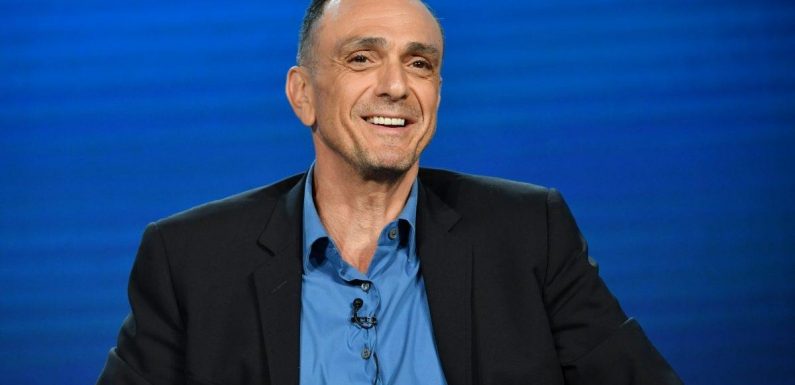
For decades on The Simpsons, Hank Azaria thought Apu was just one of the voices he did. Over the show’s 32 seasons, Azaria has voiced hundreds of characters. However, after Azaria saw the documentary The Problem with Apu and spoke with more people, he decided to stop doing the voice. The Simpsons has not made any official plans for the future of Apu, but it already recast other characters of color like Dr. Hibbert.
Azaria was a guest on Dax Shepard’s Armchair Expert podcast on April 12. He and Shepard related to each other going through recovery progams. For Azaria, it was Alcoholic’s Anonymous. So, Azaria explained how AA helped him make a decision about voicing Apu on The Simpsons.
Hank Azaria coped with the ‘Simpsons’ Apu backlash the way he coped with recovery
Azaria admitted his initial reaction to the Apu backlash was not entirely selfless. However, he recognized he faced a major decision regarding The Simpsons.
“I dealt with it the way I deal with any crisis in my life, programmatically,” Azaria said. “Lot of feelings, lot of defensive feelings, lot of hurt, lot of anger. I want to cry no fair, all kinds of things. My training as a recovering guy is when my feelings are at their peak, I need to shut up and I need to process those feelings and I need to listen and learn.”
Hank Azaria spent years talking to people about Apu
Azaria did not come to his decision to retire as the voice of Apu lightly. He felt the issue of structural racism in Hollywood was importnat enough to devote attention to learning more.
I needed to look at my part. So I went and learned, I read and talked to people. I talked to a lot of Indian people, I talked to a lot of people who knew a lot about racism in this country, I took seminars, I read. I know from program to keep my mouth shut unti I have some idea what the hell I’m talking about. While I’m still confused and upset and hurt and defensive, I don’t want to say anything and I certainly don’t want to say anything in today’s world of social media. I don’t want to swing in on a vine of a tweet or a thing.”
Azaria’s first public comment on the issue was an appearance on The Late Show with Stephen Colbert. He told Colbert he would be willing to step aside as the voice of Apu.
“By then, I felt like I know what’s in my heart,” Azaria said. “I know what I feel I know my part is, I know where I stand on this. I feel like I have something thoughtful, intelligent, compassionate and responsible in owning my part to say.”
Hank Azaria said dealing with ‘The Simpsons’ was inevitable
Azaria still performs many other voices regularly, and episodically, on The Simpsons. Now in the show’s fourth decade, Azaria realizes it was inevitable he would have to deal with his role in the creation of Apu.
“What I really thought about was I’ve had a date with destiny with this thing,” Azaria said. “It got called out maybe 27 years into the thing. If I had not gotten sober in that time and I was still a drunk guy, I promise you it wouldn’t have taken much wine, maybe a half a glass for me to be in my feelings one night and fire off some kind of tweet that I felt justified in firing off. Some kind of defensive White fragile tweet. Boy, am I glad I wasn’t in my cups and also had a system in place where I could look at this thing.”
Azaria said his years of speaking with people and learning made him realize what he didn’t know in 1988 when he first did the Indian accent.
To me, racism, participating in racism, structural racism in this country is about blind spots. I was unaware of how much relative advantage I had received in this country as a white kid from Queens. I didn’t think about this stuff because I never had to. There were very good intentions on all of our part. We tried to do a funny thoughtful character. Just because there were good intentions doesn’t mean there weren’t real negative consequences to the thing that I am accountable for.
Source: Armchair Expert podcast
How to get help: In the U.S., contact the Substance Abuse and Mental Health Services Administration helpline at 1-800-662-4357.
Source: Read Full Article


